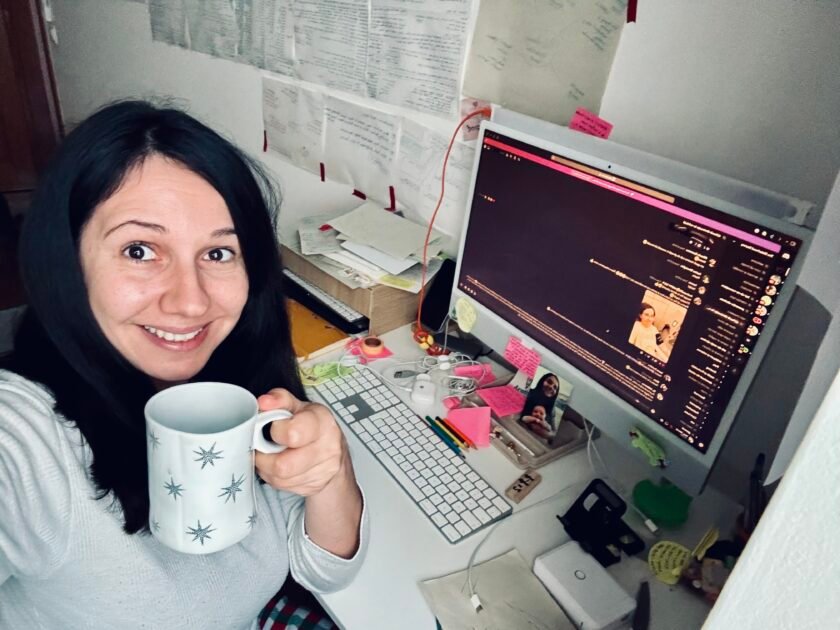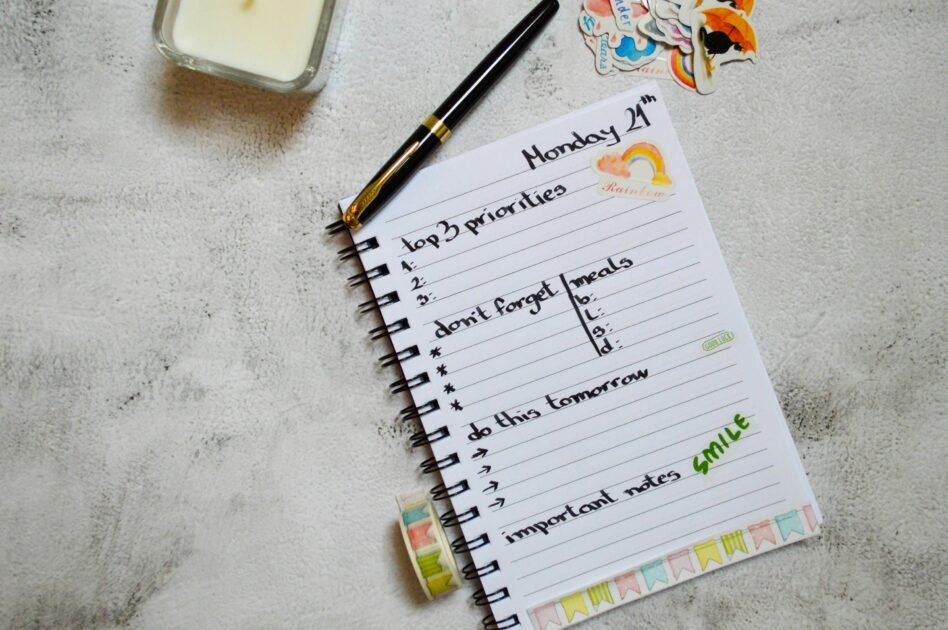I stared at my to-do list two years ago, coffee growing cold beside me. Twenty-three items. Twenty-three little boxes demanding my attention, my energy, my life force. I’d started the previous day with fifteen. Somehow, despite crossing off seven tasks, I’d ended with eight more than I began with.
Sound familiar?
There’s something almost comical about our relationship with to-do lists. They’re supposed to be tools that serve us, yet somehow we’ve become servants to them instead. I found myself apologizing to my list — yes, actually apologizing — for not completing it. “I’m sorry I couldn’t get to you today,” I’d whisper to “organize digital photos” for the fourteenth day in a row.
When did this happen? When did we start believing that our worth was measured by our output?
The Treadmill I Never Signed Up For
I lived in a world that celebrated the hustle, glorified the grind, and measured success in check marks. Social media fed me a steady diet of “5 AM club” members and “productivity hackers” showing off immaculate bullet journals and color-coded schedules. Friends humble-bragged about how “crazy busy” they were, as if perpetual exhaustion was the ultimate status symbol.
And I bought into it. All of it.
The more tasks I completed, the more valuable I felt. The more I did, the more I believed I mattered. It was as if I was trying to outrun some invisible threat — the specter of being perceived as lazy, unambitious, or worst of all, ordinary.
But everything changed two years ago when I had my son.
📺 Watch: The Endless To-Do List Trap
In this quick reflection, I share thoughts about that to-do list that keeps getting longer no matter how many things you check off. What if being ‘productive’ isn’t actually about doing more?
Motherhood: The Ultimate Productivity Disruptor
Nothing — and I mean nothing — tests your productivity obsession quite like becoming a parent. Suddenly, my meticulously planned days were at the mercy of a tiny human whose needs couldn’t be scheduled, postponed, or optimized.
My old relationship with productivity didn’t just need adjustment; it required complete demolition and rebuilding from the ground up.
Those first few months were a painful reckoning. I’d set out to accomplish five things and end the day having done maybe one — and even that one thing was often interrupted a dozen times. The perfectionist in me screamed in protest. The productivity addict went through serious withdrawal.
But my energetic toddler didn’t care about my to-do list. He cared about exploring the world, about connection, about living fully in each moment. And slowly, painfully (but with a healthy dose of sarcasm to get me through), he began teaching me what no productivity book ever could.
The Mirror Moment
I remember adding “schedule time to meditate” to my to-do list when my son was about six months old. The irony hit me like a wave: I had become so obsessed with productivity that I needed to make connecting with myself another task to complete. I had to laugh at myself — it was either that or cry.
In that moment of unexpected clarity, I asked myself a question that changed everything: “What am I trying to prove by doing so much?”
The answer was uncomfortable. I was trying to prove I was worthy. Valuable. Enough.
But here’s the truth I’m slowly learning to accept: I was already enough before I checked a single box.
And so are you.

Redefining Productivity Through the Lens of Motherhood
These past two years with my son at home full-time have forced me to redefine what productivity actually means. Here’s what I’m learning:
- Progress is progress, even when it’s tiny: Before motherhood, anything less than 80% completion felt like failure. Now I celebrate the 1% victories because they still move me forward.
- Flexibility isn’t just helpful — it’s essential: Those rigid schedules and inflexible deadlines? They’re the first casualties of parenting. I’m learning to build in buffer time and expect the unexpected.
- Sometimes “productivity” just means survival: There are days when keeping everyone fed, relatively clean, and emotionally intact is a massive achievement. And that’s completely OK.
- Presence outweighs performance: Being fully present for twenty minutes with my son creates more value than checking off ten distracted tasks while half-listening to him.
- The to-do list serves me, not the other way around: I’m learning to view my list as a flexible tool rather than a demanding taskmaster.
“Sometimes the most productive thing you can do is build that tenth block tower of the day.”
Breaking Free: Practical Steps for Recovering Productivity Addicts
If you recognize yourself in this story, here are some ways to begin breaking free:
- Question the source: For each item on your list, ask “Who am I doing this for?” If the answer isn’t genuinely yourself or someone you love, reconsider its place on your list.
- Identify the fear: What are you afraid would happen if you didn’t complete this task? Name the fear, then question its validity.
- Create a “not-to-do” list: Deliberately decide what you will NOT do. This is as powerful as deciding what you will do.
- Practice saying “no”: Every “yes” to something is a “no” to something else. Choose your “yeses” carefully.
- Schedule blank space: Put unscheduled time on your calendar and protect it fiercely. This isn’t lazy — it’s strategic.
- Define “enough”: What would it take for you to feel you’ve done enough today? Create clear, achievable boundaries.
- Celebrate the incomplete: At the end of each day, look at what you didn’t complete and say, “These things can wait. I am more than my productivity.”
The Art of the Flexible Checklist
One of my most valuable discoveries has been the flexible checklist — a revolutionary concept for a former productivity obsessive. Here’s how it works:
- I still make my list, but I divide it into three categories:
- Must happen today (usually just 1-3 things)
- Would be nice if it happened
- Can absolutely wait
- I expect interruptions and build in time for them
- I celebrate whatever gets done, even if it’s just from the “must happen” category
- I view the uncompleted items not as failures but as choices to prioritize what mattered more in that moment
This approach has been transformative in helping me maintain some structure while embracing the beautiful chaos that comes with having an energetic toddler at home full-time.

💭 Journal Prompt
What would happen if you stopped trying to prove your worth through productivity? How would your days look different? How would you feel different?
Take a few minutes to reflect on this question. You might be surprised by what comes up.
The Real Question
The real question isn’t “How can I get more done?” but “What am I trying to prove by doing so much?”
Motherhood forced me to confront this question in ways I couldn’t avoid. It stripped away my productivity armor and exposed the vulnerable human underneath who sometimes just needs to sit on the floor and build block towers for an hour.
I’m still working on fully embracing this mindset. Some days are better than others. But I’ve noticed that on days when I measure myself by alignment and presence rather than achievement, everything changes. My breathing deepens. My shoulders relax. I can actually enjoy those moments with my son instead of mentally cataloging everything I’m not doing.
I remember that I am a human being, not a human doing.
A New Definition of Productivity
True productivity isn’t about maximizing output. It’s about intentionally directing your finite energy toward what matters most. It’s quality over quantity. Depth over breadth. Meaning over metrics.
What if we redefined productivity as “the measure of how well your actions align with your values”?
By that definition, sometimes the most productive thing you can do is build that tenth block tower of the day. Or read “Goodnight Moon” for the twentieth time. Or simply watch your child discover something new about the world.
So I invite you to join me in this quiet revolution: Step off the treadmill. Question the list. Remember what matters.
Because life is too short to spend it proving your worth through checked boxes. And our children will remember our presence, not our productivity.
What would happen if you stepped off your treadmill today?
Loved this post? Subscribe to my Heart-to-Heart Newsletter for more reflections on intentional living and mindful parenting that I don’t share anywhere else.
